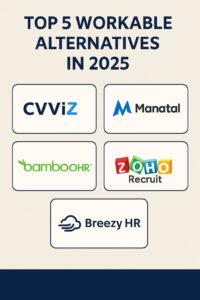It should come as no surprise that going virtual has become a crucial part of the digital age. After all, companies are finding that online interviews are more cost-efficient and can save more time. Additionally, the availability of tech solutions is making tools like video resumes a vital part of the hiring process. In fact, 79% of hiring managers say that video has become “more important” than ever before for vetting applicants, while 61% of job seekers consider recorded video as the “next iteration of the traditional cover letter,” according to a LinkedIn survey.
A video resume can provide a unique opportunity to stand out and showcase your personality. It can also demonstrate your creativity and ability to think outside the box. When filming your video resume, basic tips like keeping it short and sweet, using proper lighting, letting your personality shine, and, most importantly, looking presentable are all vital for making a good impression. But applicants with vision correction needs have something else to consider: Should you be wearing contact lenses or glasses in your video? Let’s weigh in below.
Contact lenses
Contacts are a popular vision correction tool worn by over 140 million people worldwide. These lenses provide a wider field of vision than glasses because they are placed directly on the eyes, eliminating frame obstructions that can limit your peripheral vision when filming. However, contact lenses can make you prone to dry eyes since contacts can interfere with the natural tear film, leading to increased tear evaporation. As you spend more time filming, dry eyes can cause more complications like visual discomfort and irritation, which can physically manifest through twitching or blinking – potentially compromising how professional you look in your video resume.
Luckily, there’s now a wide variety of contacts designed to provide comfort during extended wear available on the market. Several brands of contact lenses like ACUVUE and Dailies ensure you can film without worrying about dryness and discomfort. These contacts are equipped with moisture management and retention features that keep the eyes well-hydrated even for long periods, providing optimal comfort while filming. Since contact lenses are more discreet than glasses, wearing them can help you look natural and feel more comfortable in your video resume. You also won’t have to worry about glasses potentially slipping off or reflecting the light while filming.
Glasses
On the other hand, glasses are more popular than contact lenses, with studies showing that over a billion people globally wear spectacles. Although they’re more widespread, studies show that wearing eyeglasses can negatively impact self-esteem and perceived attractiveness, which might affect your confidence when speaking. Other studies also show that glasses-wearing individuals may associate glasses with an unsatisfactory appearance since they cannot achieve the same natural look that contact lenses provide. When filming, lighting can also reflect off your lenses, causing glare and unwanted reflections that may be too distracting for hiring managers.
However, like contacts, wearing glasses also has its fair share of pros. While some may associate eyeglasses with poor self-image, other studies have found that wearing glasses can actually improve the perception of intelligence, which means they can help you look smart and professional in your video resume. Glasses with anti-reflective lens coatings, such as the Ray-Ban RB5387 Optics and Michael Kors Santa Clara, are also available to help reduce reflections on the surface of your spectacles. Some eyeglasses also have anti-fatigue lenses that can minimize eye strain if you’re filming for relatively more extended periods.
Contact lenses and glasses have their pros and cons. The latter can help you look more intelligent, while the former can provide a more natural look. Your choice of eyewear for your video resume will ultimately depend on your vision correction needs and personal preferences. Just remember to put your best foot forward so you can make a lasting impression in your video, regardless of what you ultimately choose to wear.




